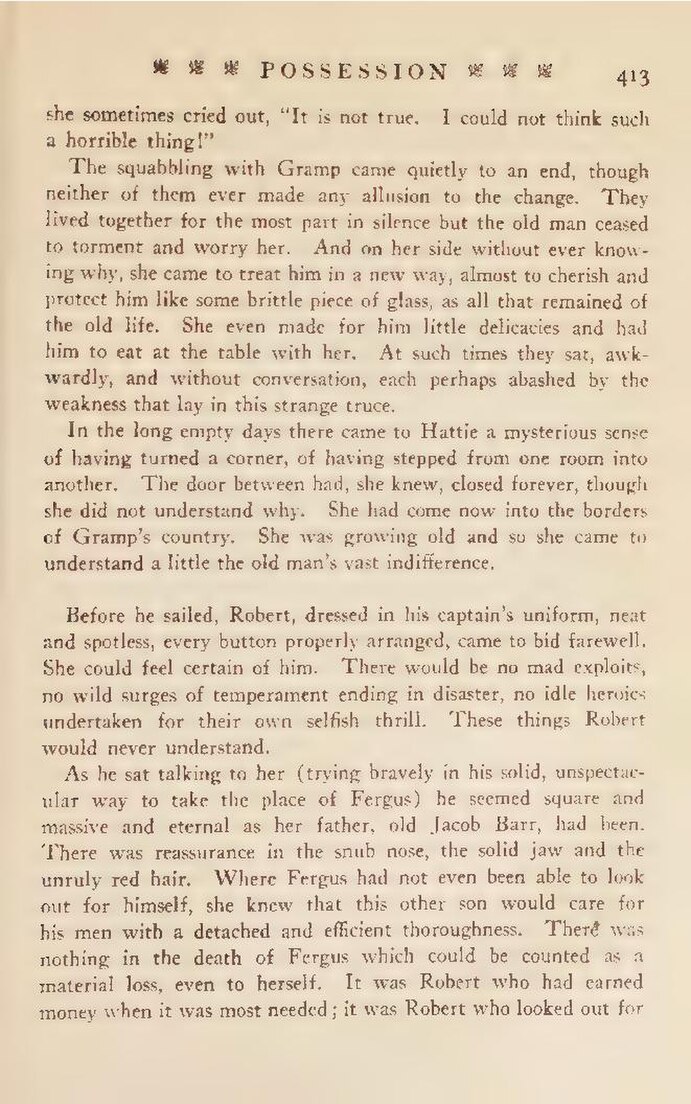she sometimes cried out, "It is not true. I could not think such a horrible thing!"
The squabbling with Gramp came quietly to an end, though neither of them ever made any allusion to the change. They lived together for the most part in silence but the old man ceased to torment and worry her. And on her side without ever knowing why, she came to treat him in a new way, almost to cherish and protect him like some brittle piece of glass, as all that remained of the old life. She even made for him little delicacies and had him to eat at the table with her. At such times they sat, awkwardly, and without conversation, each perhaps abashed by the weakness that lay in this strange truce.
In the long empty days there came to Hattie a mysterious sense of having turned a corner, of having stepped from one room into another. The door between had, she knew, closed forever, though she did not understand why. She had come now into the borders of Gramp's country. She was growing old and so she came to understand a little the old man's vast indifference.
Before he sailed, Robert, dressed in his captain's uniform, neat and spotless, every button properly arranged, came to bid farewell. She could feel certain of him. There would be no mad exploits, no wild surges of temperament ending in disaster, no idle heroics undertaken for their own selfish thrill. These things Robert would never understand.
As he sat talking to her (trying bravely in his solid, unspectacular way to take the place of Fergus) he seemed square and massive and eternal as her father, old Jacob Barr, had been. There was reassurance in the snub nose, the solid jaw and the unruly red hair. Where Fergus had not even been able to look out for himself, she knew that this other son would care for his men with a detached and efficient thoroughness. There was nothing in the death of Fergus which could be counted as a material loss, even to herself. It was Robert who had earned money when it was most needed; it was Robert who looked out for
